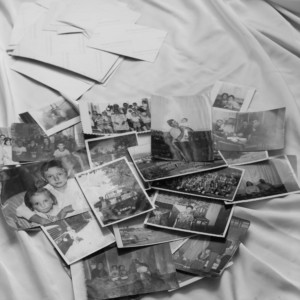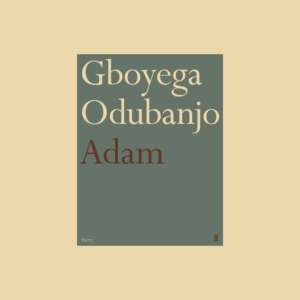Technique [How to Discover or Disown It] 2.0
What training do you do to sustain and maintain yourself as a poet? Explore the essential work of writerly ‘technique’, in an all new edition of this popular course.
* This course will take place on video-conferencing platform ZOOM *
‘Technique – our eyes don’t fill with wonder when you speak’ – ‘Technique’, Prefab Sprout
‘As for measure and other technical apparatus, that’s just common sense: if you’re going to buy a pair of pants you want them to be tight enough so everyone will want to go to bed with you.’ – ‘Personism Manifesto’, Frank O’Hara
With this course you will develop, test, alter, discuss or discover your own poetic ‘technique’. Technique, in this instance, being seen as different in kind from, but not totally disconnected to, poetic form. That is, everything else about ‘being a poet’. We might ask, as we might ask an athlete – what training do you do to sustain yourself as a poet?
For example, many poets find it difficult in our busy 24-hour culture to get any writing done at all. How do you fit the world and the restrictions of your life to your writing programme? How do you write your poetry? – in notebooks, on laptops, dozens of crumpled notes and the backs of receipts? Forwards, backwards, piece-meal; slowly, in a rush?
What are the rhythms of your usual day, of your speaking voice, how are you affected by the repetition we all experience? Are you prolific? Does it come slow. Are you happy with this? Do you just wait for ‘inspiration’ or can you find a way to climb back up to the previous originating point of your most inspired work? How do you attune to and catch the inklings and rustlings of the inner-self and mind that might be the ‘pre-matter’ of a potential poem. [Not ideas!]
What are your current tendencies in your work – in lineation or formal/informal laying out of the poem, adherence to particular traits and tropes? What about influences? Helpful or harmful? Where do you position yourself in the ‘poetry firmament’ or how do you define your practice? How might the immediate and wider contexts of your life infiltrate your work? And if we are going to mention form, are the forms you tend to write in sympathetic to your thought or what you are trying to achieve or working against that? What is the ‘unresolvable dilemma’ within you that might be the gift that keeps on giving?
This is largely a practical course, with exercises, discussion, ‘homework’, presenting and critiquing your work, alongside the examination of sample poems; we will also look at texts – critical and otherwise – that give us potential new techniques, and therefore new pathways, into our own writing.
10 weekly Zoom sessions on Thursdays, 7–9pm (BST), starts 23 January 2025.
To apply for a concession rate, please send relevant documentation showing your eligibility for one of our concessions to [email protected]. Conditions of eligibility are detailed here. More information about how our Video Courses work can be found on the Video Courses page. If you have any questions or wish to be added to the waiting list of a sold-out course, please email [email protected].
Image credit: Suzy Hazelwood
About Matthew Caley  View Profile
View Profile
Matthew Caley’s 7th collection, To Abandon Wizardry, is published by Bloodaxe in November 2023. Since his debut, Thirst [Slow Dancer, 1999] was nominated for The Forward Prize for Best First Collection, his work has been widely anthologised and appeared in many magazines, websites and journals. He has given many readings both here and abroad.
In addition to being a regular tutor/mentor for The Poetry School in London, he has recently held Poetry/Creative Writing posts at St Andrews University [twice], at The University of Winchester, and Royal Holloway University London. He gave the StAnza 2020 Lecture in March. Trawl, a video-piece made in collaboration with Steve Smart and Alex South and commissioned by StAnza 2020, was shown there and at poem-film Festivals in Berlin and Texas. He published a pamphlet of loose versions of 19th/20th Century French poets Prophecy is Easy, with Blueprint Press, in 2020. He is a member of the scientific and organising committee for the International Semiotics and Visual Communication conference – Cyprus University of Technology and has three times given key-note talks there.
He previously taught in Art & Design for many years, collaborated with artist and musicians, co-edited and wrote for a book on the pop song in cinema, and before that was involved in design for the arts and music industries, co-designing, amongst other things, the packaging for Prefab Sprout’s debut LP Swoon.
‘Chief among British poets Caley takes seriously the vision of synesthetic abundance laid out in Mallarme’s essay ‘Crisis and Verse’…[ ] Caley is a great poet of transposition and vibration… [ ] Caley at his very best, an offhand philosopher and bard of the demi-monde, gently blowing our minds.’ – Dai George POETRY WALES
"I started at the Poetry School as a new writer 20 years ago and have not stopped. It has made a big impact on my life as writing has become an integral part of it. There is always more to learn and share and the Poetry School continues to come up with intriguing new angles and avenues to explore."
 Narrative Art: Poetic Storytelling
Narrative Art: Poetic Storytelling Conditions of Invisibility & Creation of the Self, after Gboyega Odubanjo
Conditions of Invisibility & Creation of the Self, after Gboyega Odubanjo What Makes a Collection?
What Makes a Collection?